Ahead of July’s Playing with Prose workshops, actor Jack Tarlton discusses his first experience of running a virtual theatre workshop as the world went into lockdown – and reflects on the ways on which it connected students around the world.
In the last few weeks before the United Kingdom went into lockdown due to the Covid-19 pandemic, I finished a run of a play in Glasgow and held Playing with Prose, a two-day course on adapting novels for the stage held at the Institute of Modern Languages Research. I was able to keep relatively busy during the first few weeks of lockdown from my base in Edinburgh by organising the online publication of two short plays that had been created at that workshop, but the possibility of any acting or teaching in the coming months now looked impossible. I was therefore extremely happy to be asked if I would consider adapting the workshop itself into an online course held over Zoom, a new tool that we had all suddenly found ourselves tentatively using.
I was intrigued by the possibility but nervous. I had always hoped that the workshop caught the playful possibilities of the rehearsal room as well as the rigour of the classroom. As much as possible, I wanted it to be a dialogue between the students and myself, for there to be room for uncertainty and discovery. I was concerned that all this would be lost by only being able to communicate through our computer screens.
Soon though, I started to see that there might be some benefits to this new way of working. By dividing what had been two intensive days into six two hour sessions over one week I was able to offer more time on each project and, more importantly, the students would be able to have nearly four days to work on their own scripts instead of only a few hours. Realising also that the students would not now be able to direct and perform their own scripts, I proposed bringing in five fellow actors to read the short plays. Buoyed by taking part in an online script-reading myself, I started to think this might just work, and when I discovered that there were already students registering from as far afield as Germany, the real potential of the project started to become apparent.
Adapting the course-work itself proved relatively easy. Passages from the books and plays of Coram Boy, The Curious Incident of the Dog in the Night-Time, Paul Auster’s City of Glass and The Death of Ivan Ilyich could be shared with ease, as could photographs and videos to illustrate each performance. It was certainly saving on paper and photocopying. Revisiting the material also encouraged me to retool it. If each point that I wanted to make was going to have to travel a greater distance, I wished for them all to be launched with confidence and clarity.
However, I still felt the familiar first day of rehearsal nerves as I waited for the students to arrive on the first morning of teaching. But once everyone introduced themselves and we started to interact from our personal spaces from countries as far afield as not only Germany but also Portugal, Hong Kong, Italy and Pakistan, I realised what a truly exciting prospect this was.
I finished the first day tired but rejuvenated. Time apart from each other allowed everyone to go over their notes and return to the next session with new insights and questions. Although I was slightly thrown on the second day with people popping up on screen in a different order so that it felt like everyone had moved desks suddenly, I was starting to feel a real sense of camaraderie amongst us all, paradoxically intensified by the physical distance between us. There was something positive in a group of strangers with very different first languages, educational backgrounds and life experiences regularly gathering in a space that only existed because we all wanted it to. One student described this space that our collective presence had created as “a venue for a great diversity of people from around the globe” and many of those involved have since described how all these “alternative perspectives” energised and brought another layer to the class, with us all committed to “joining forces to create something unique” by “reading … across continents.”
I was pleased too that certain playful elements of the workshop could be kept alive. Inspired by the playwright Stephen Sharkey’s approach to breaking down the linear nature of the twelve chapters of The Death of Ivan Ilyich by rolling two dice and allowing chance to guide him, there was something thrilling in watching two students rolling a dice in different countries and adding them up to see which chapter of the novel we would collectively read first.
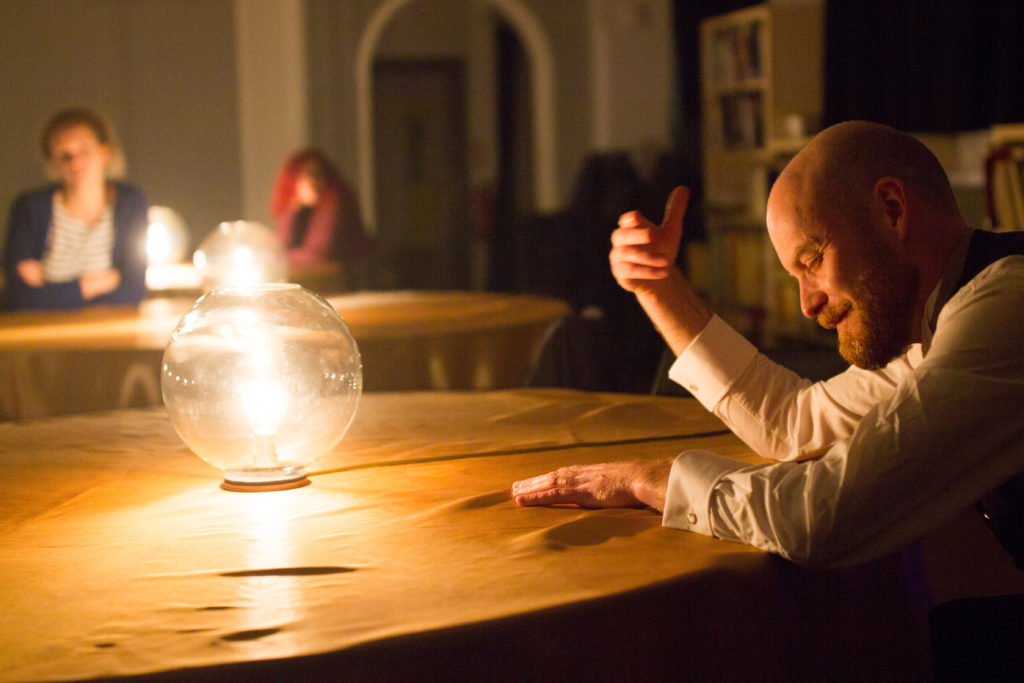
Some doubts did remain. There were periods when I was pressed for time and had to talk at length without being able to open it out to the group that felt as though I was possibly just throwing words down a well without any of them being grasped. When download issues meant that some students had not received a document, I missed not just being able to hand it to them, but in these moments people would quickly step in and sort out any technical issue far more effectively than I could, strengthening the friendship that was developing amongst us.
This was put the test when I divided the group into twos and threes on the Friday afternoon and gave them each a short story – from Guy de Maupassant’s The Little Keg to speculative fiction writer N. K. Jemisin’s dark tale of fandom Henosis – and told them they had until Monday evening to write a short play based on it. Would they get on and be able to work together in their smaller groups? Or would the difference in personality, location and time zone prove too great? I had considered giving each student a story of their own but what kept emerging as we explored the productions was that adapting prose for the stage necessitates and encourages a collaborative gesture from all involved, and it was this spirit that I was hoping to harness.
I need not have worried. When the work started to come in on Monday, each of them felt like a true synthesis between the sensibilities of each of the students, harnessing and moulding the spirit of the original text. Inspired by the examples that we had been studying the previous week, each play was boldly different from the others and I was looking forward to sharing them with the actors the following day.
I had always thought the actors would be reading the plays, but as soon as we had gathered with the participants the feeling was palpable that this was in fact a performance. It was completely different from watching a show or even a rehearsed reading on stage, but despite everything there remained a sense of occasion and generosity of sharing that you get in the best nights in the theatre.
Many of the students have since described the moment that their plays “came to life” as exhilarating and were excited that we were able to bring “the magic of theatre online.” One participant said, “I could not help my laughter. It was not because I found it funny, but happy.” Although the actors had only received the texts the night before, and there had been no rehearsals or direction, each performed with sincerity and wit and with a natural respect for the material that I found inspiring. Despite what lots of other actors had been saying in the preceding weeks, I had weirdly not found myself missing theatre. Now, suddenly I was.
I had though been aware of the dark irony that had pervaded the course – that we had been exploring ways to stage books, and yet this was now impossible. Theatres across the country closed before most other businesses and it looks as though they will remain closed to audiences until at least 2021, with many buildings possibly going out of business before then. Whatever theatre will look like when we are able to start creating and watching together again, it will be very different from the environment in which Coram Boy, The Curious Incident of the Dog in the Night-Time, Paul Auster’s City of Glass and The Death of Ivan Ilyich were able to flourish.
During one of the feedback chats that followed each of the students’ plays, actor Christopher Brand quoted John Gielgud by saying, “Style is knowing what sort of play you’re in” in response to a question about the difference between performing on stage or radio. I made the point that Gielgud never had to perform on Zoom – which got the laugh I had hoped for – but then I had to say that perhaps this will be how actors do perform for the foreseeable future; this strange hybrid between live performance, film work and a video call.
And although there were times that I longed for us to all be in same room or to be able to get a sandwich together at lunch-time, a group of individuals in separate cities, countries and time zones managed to share our collective knowledge and experiences and create and perform six new short plays in the space of a few days. That would not have been possible before and has to be celebrated.
Afterwards, actor Anna Leong Brophy told me how touched she was by witnessing the students looking after and supporting each other. Like the best acting companies we were, briefly, a community. It was a small act in the great scheme of things but we proved that we could still come together to tell each other stories. Or, as one student put it, “In a time of isolation and self-distancing having the chance to work with people all over the world united by the same passion was refreshing to say the least.”
Book now to join Jack for Playing with Prose, 28 July-4 August 2020

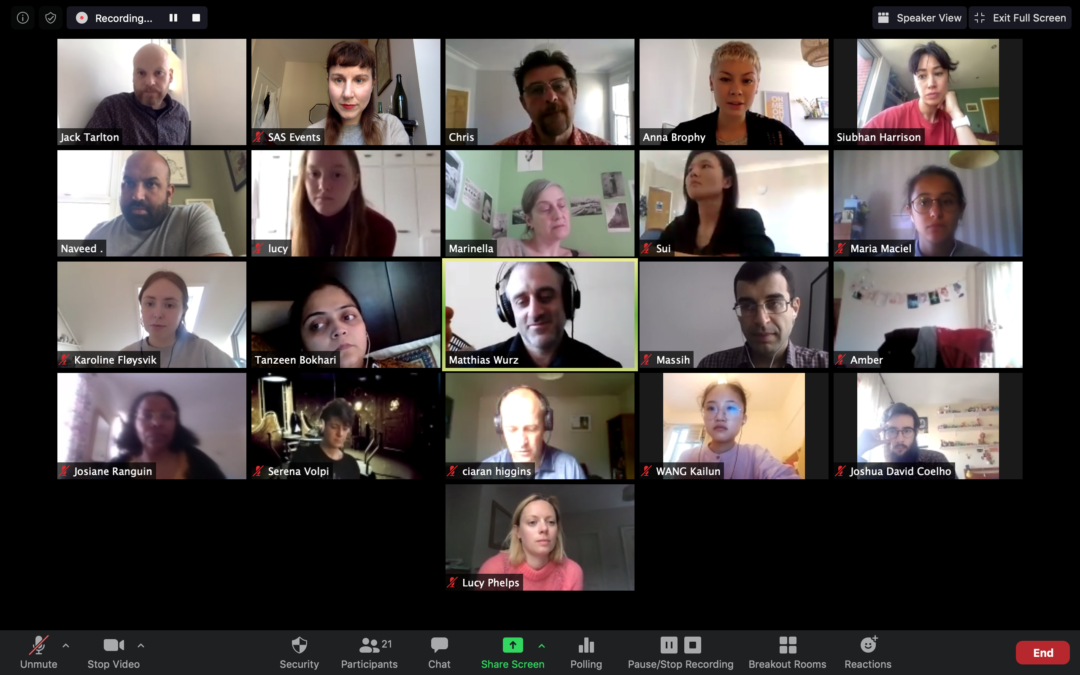
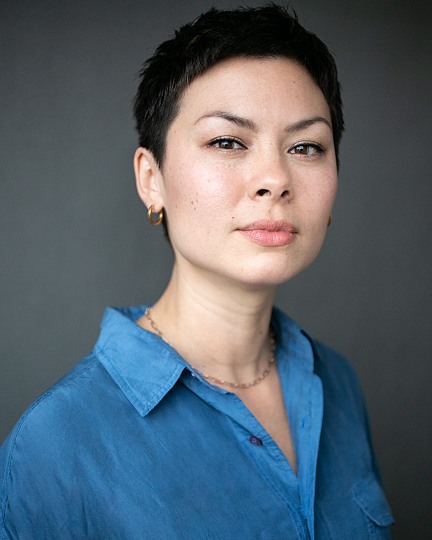
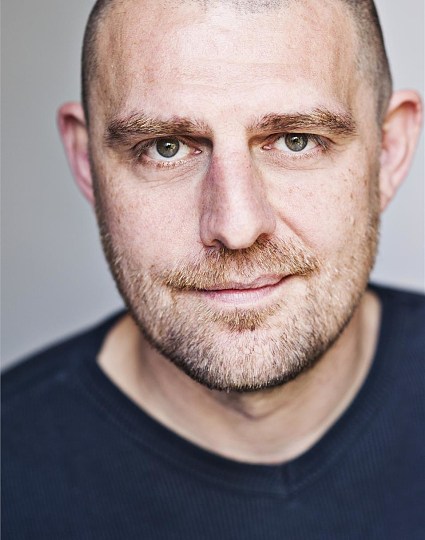
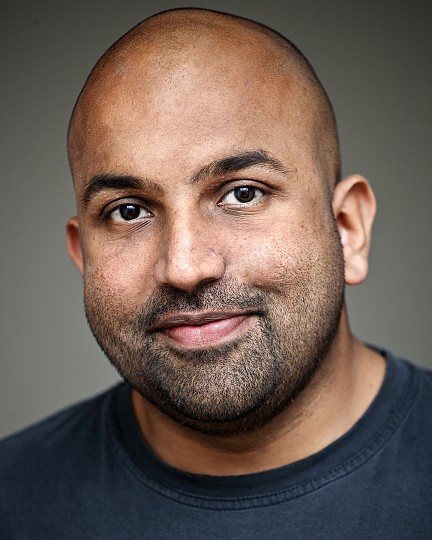
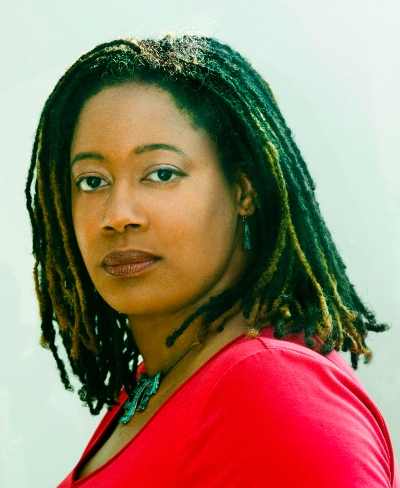
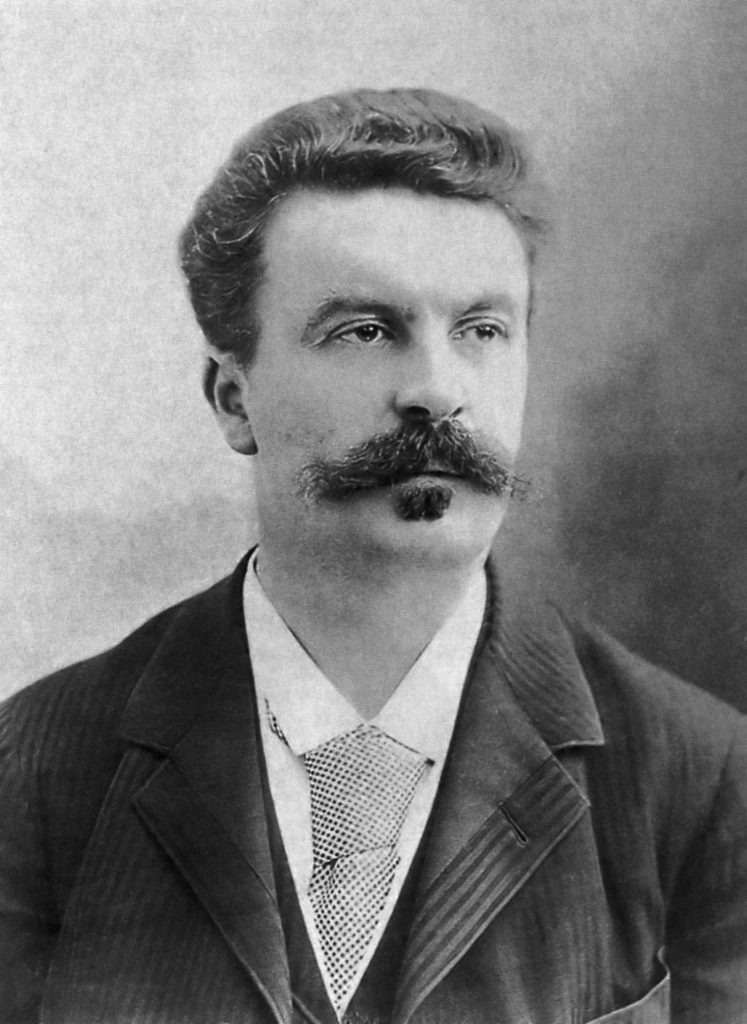


A wonderfully inspiring experience, especially for all of us who have just learnt how to use zoom. Connecting across the globe (the real globe) to perform together is quite mind-boggling!